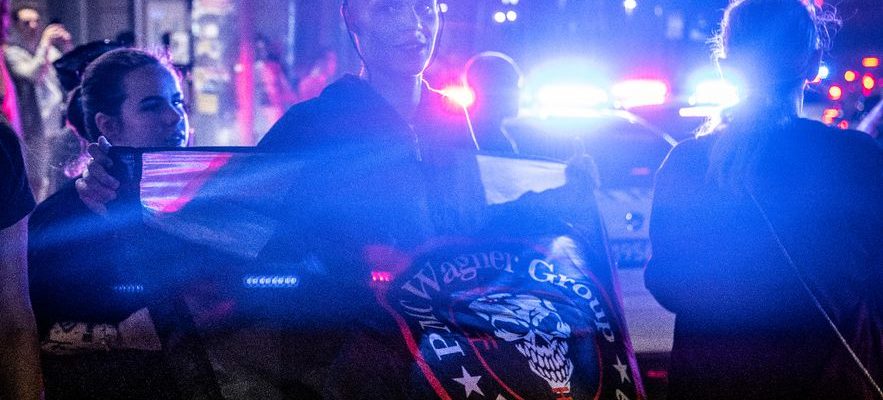At the beginning of the year, his unit of small drones dropping grenades remained for more than a hundred days on the Bakhmout front, harassing Wagner’s troops. So, this Saturday, June 24, when the Russian militia, after taking control of Rostov, is advancing towards Moscow, Robert “Magyar” Brovdi is not sulking his pleasure. On a humorous videorelayed on various social networks, where we see him with his eyes riveted on a tablet, absorbed by the latest harangues of the leader of the mercenaries, Evgueni Prigojine, then of Vladimir Poutine… while digging into suitcases overflowing with popcorn as if he was at the cinema.
Even if it fell short, the rebellion of the group is obviously not to displease the Ukrainians. And not just because it brought to light the deep divisions within the Russian forces. “It revealed the shocking lack of combat readiness of the troops on the home front, points out the former Ukrainian Minister of Defense, Andriy Zagorodniuk. They scrambled to gather units and equipment from various regions, while Wagner’s mercenaries easily seized cities, military installations and traveled hundreds of kilometers to Moscow.”
Launched in early June in a counter-offensive to regain control of the occupied territories, the Ukrainians necessarily see it as a boon. They bet on June 24 on a certain confusion in the Russian lines: “They sought to take advantage of this disorganization to intensify their actions, in order to play on the paralysis of the command of the southern military district [basé à Rostov] and therefore on the difficulty of routing reinforcements”, remarks researcher Thibault Fouillet, of the Foundation for Strategic Research.
Young people wave a Wagner Group flag in Rostov, June 24, 2023
© / afp.com/Roman ROMOKHOV
However, the Prigojine revolt “did not last long enough for it to have too serious an effect on the Russian troops”, specifies Yohann Michel, analyst at the International Institute for Strategic Studies (IISS). “But there could be effects on the supply chain, material having changed hands, he continues. It could take time for some units to regain their consistency.”
Another blow to troop morale
After the agreement reached between Putin and Prigojine – the latter must go to Belarus – the “Wagners” retreated to their camps, where they must remain at the disposal of the Kremlin. “But their credibility is being questioned: can the Russians once again give them responsibility for whole sections of the front like in Bakhmout? At the same time, how can they do without their 20,000 men?, asks Thibault Fouillet. to exploit this.“
As for the affront to the power of Vladimir Putin, it could undermine the morale of the soldiers forced to hold the Russian defensive positions in Donbass or in the occupied zone of the Zaporijia oblast, giving access to the Black Sea. “This would be the case in particular if there is no change at the head of the Russian army, advances Yohann Michel. But, in the opposite case, morale could improve if they think that they are led by more competent commanders, or if the Ukrainians fail to break through their lines.”
Prigozhin’s coup could also change how Russian and Ukrainian leaders view future talks. “He showed everyone that, in this conflict, time is not only against Ukraine, but also against Russia,” adds the IISS researcher. Because the longer the war goes on, the more factions like Wagner, whom Vladimir Putin thought he was keeping on a leash, could bite his hand, to the point of calling into question the established order.
Further setbacks in Ukraine could fuel this domestic threat. “Those who said that Russia was too strong to lose: look now, commented the head of Ukrainian diplomacy, Dmytro Kouleba. Give Ukraine all the necessary weapons; forget friendship or business with Russia. It’s time to put an end to the evil that everyone despised but was too afraid to put down.”
